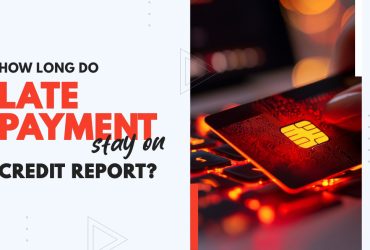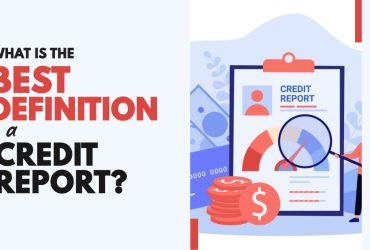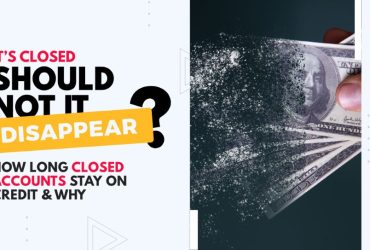Understanding the Three Credit Bureaus [Detailed Guide 2024]
by Almas Tariq
March 26, 2024
06:03 PM
![Understanding the Three Credit Bureaus [Detailed Guide 2024] featured image](https://scoreceo.com/wp-content/uploads/2025/03/Understanding-the-Three-Credit-Bureaus-Detailed-Guide-2024.png)
.In the world of credit repair, the significance of the three major credit bureaus—Experian, Equifax, and TransUnion cannot be overstated. These institutions play a pivotal role in credit reporting, influencing the financial pathways for millions of individuals.
For credit repair businesses, a deep understanding of how these bureaus operate, their differences, and how to interact with them is essential for providing top-notch services to your clients. This blog dives into the operational intricacies of Experian, Equifax, and TransUnion, offering insights to elevate your credit repair strategies.
The Role of Credit Bureaus in Credit Reporting
The credit reporting landscape is dominated by three major players: Experian, Equifax, and TransUnion. These credit bureaus hold the keys to the financial future of millions, making their role in the credit ecosystem both pivotal and profound. For credit repair businesses, an intricate understanding of these bureaus is essential. Let’s dive deeper into their importance, how they manage data, and their impact on credit scores.
-
Importance of Credit Bureaus
Credit bureaus serve as the linchpin in the financial ecosystem, acting as intermediaries between consumers and lenders. They provide a vital service by compiling, maintaining, and distributing credit information that lenders use to make informed decisions. This information helps lenders assess the risk of lending to a particular individual, thereby influencing the terms of credit offered. For consumers, this means that their financial behaviors, as reported to these bureaus, can significantly impact their access to financial products and the conditions under which these products are offered.
For credit repair businesses, understanding the central role these bureaus play is crucial. This knowledge enables them to better advocate for their clients, ensuring that the credit information reported is accurate and fairly represents the consumer’s creditworthiness.
-
Data Collection and Management
The credit bureaus gather information from a myriad of sources, including banks, collection agencies, credit card companies, court records, and other financial institutions. Also, this data encompasses payment histories, credit limits and usage, balances, and public records such as bankruptcies and foreclosures amongst others. Each bureau has its methodology for collecting, updating, and storing this information, leading to potential variances in the credit reports they produce.
Effective data management is critical, as inaccuracies can negatively impact a consumer’s credit score. Credit repair companies must be adept at identifying such inaccuracies across different reports and engaging with the bureaus to correct them. This requires a thorough understanding of each bureau’s dispute resolution process and the documentation needed to support claims of inaccuracies.
-
Impact on Credit Scores
The information provided by the credit bureaus feeds into various credit scoring models, such as FICO and Vantage Score, which calculate credit scores. Credit scores are numerical representations of a consumer’s credit risk, utilized by lenders to decide on extending credit and determining interest rates. These models consider factors like payment history, credit utilization, length of credit history, types of credit in use, and recent credit inquiries.
Credit repair businesses need to comprehend how various types of information reported by the bureaus impact these scoring models. With this knowledge, they can pinpoint the most effective strategies for enhancing their clients’ credit scores. Strategies may include disputing inaccuracies, advising on credit utilization, or aiding in establishing a positive payment history.
Experian: A Deep Dive
Experian, a behemoth in the realm of credit reporting and data analytics, commands a significant presence on the global stage. For credit repair businesses, understanding Experian’s evolution, unique offerings, and engagement protocols is pivotal. Let’s delve into the depths of Experian’s world.
-
History and Global Reach
Experian’s story began in 1968, evolving significantly over the decades to establish itself as a global leader in credit reporting and data analytics. Officially formed in its current incarnation in 1996 and headquartered in Ireland, Experian has expanded its influence to encompass about 245 million individuals and 27 million businesses in the US alone. Experian’s operational reach extends from the UK to the US and beyond, highlighting its key role in global credit reporting. As a company listed on the London Stock Exchange and part of the FTSE 100 index, Experian sets industry standards worldwide. Its operational headquarters are in Nottingham, UK, with a significant presence in Costa Mesa, California.
-
Unique Features and Services
Experian offers a comprehensive suite of services catering to diverse needs, including those of credit repair businesses. With a vast database that includes credit scoring information, household demographics, vehicle records, and more, Experian provides an unparalleled resource for in-depth consumer insights.
Additionally, Experian’s paid credit locking service, which includes $1 million in identity theft insurance, offers consumers peace of mind by securing their credit reports against unauthorized access.
For credit repair businesses, these services mean a wealth of opportunities to guide clients towards better financial health. Understanding and leveraging Experian’s tools can significantly enhance a business’s ability to provide precise, impactful interventions for clients.
-
Engaging with Experian
Navigating the process of disputing errors and optimizing client reports with Experian requires a strategic approach. Best practices include familiarizing oneself with Experian’s dispute resolution protocols, which allow for online, mail, or phone submissions. Providing comprehensive documentation to support credit repair disputes is crucial for a successful resolution. Moreover, staying informed about Experian’s latest tools and services can empower credit repair businesses to offer more effective solutions to their clients, potentially delivering optimal outcomes.
Despite its contributions to the credit industry, Experian has faced challenges, including scrutiny over a data breach in 2015 and a fine in 2017 for misleading credit score information. These incidents highlight the importance of rigorous data protection measures and transparent communication for maintaining consumer trust.
Equifax: Unpacking Its Services
Equifax, a titan in the credit reporting industry and a multinational credit reporting agency operating in 25 countries and tracking data on over 222 million US consumers plays a crucial role in the credit ecosystem. For credit repair businesses, a deep dive into Equifax’s foundation, unique offerings, and strategies for engagement can unlock new avenues for client service and advocacy.
-
Foundation and Market Position
Founded in 1899 in Atlanta, where its headquarters remain, Equifax has grown from a small entity into one of the largest credit reporting agencies in the world. Its longevity and evolution reflect its ability to adapt and innovate in the dynamic financial sector.
Listed on the New York Stock Exchange and a proud member of the S&P 500, Equifax has cemented its position as a cornerstone of the credit reporting industry. Its services are vital to major industries including financial services, insurance, retail, healthcare, utilities, and government agencies, underscoring its broad impact across the economic spectrum.
-
Equifax’s Differentiators
What sets Equifax apart in the crowded credit reporting field are its comprehensive offerings and its commitment to innovation and security. Beyond traditional credit reporting,
Equifax offers both business and consumer credit products, including a free credit lock product and a comprehensive credit monitoring solution. Furthermore, through ID Watchdog, it also provides identity theft protection services, showcasing its commitment to consumer security and trust.
The company’s approach is characterized by its use of advanced analytics to offer deep insights into consumer behavior and financial health. This emphasis on innovation benefits consumers and gives credit repair businesses unique tools. These tools help assess and guide clients on correcting their credit profiles.
-
Effective Strategies for Equifax Interaction
Navigating interactions with Equifax successfully requires a strategic approach tailored to its specific processes and offerings. Here are some tips for credit repair businesses:
- Understand Equifax’s Dispute Process: Familiarize yourself with the procedures for disputing inaccuracies on credit reports provided by Equifax. This streamlined approach involves understanding how to effectively submit credit repair disputes, either online or through traditional mail. Additionally, it encompasses knowing the types of documentation Equifax may require to process these disputes.
- Leverage Equifax’s Products for Client Benefit: Make the most of Equifax’s consumer products, such as its credit lock and monitoring services, to provide clients with added value. These or similar type tools can be instrumental in preventing identity theft and ensuring that credit reports remain accurate.
- Stay Informed about Equifax Updates: Equifax’s offerings and policies can evolve. Keeping abreast of any changes ensures that your credit repair strategies remain current and effective. Additionally, understanding any new tools or services Equifax introduces can help you offer more comprehensive support to your clients.
Despite facing challenges, including the significant data breach in 2017 that affected 147 million consumers, Equifax has taken steps to reinforce its commitment to consumer security. The settlement included civil penalties and offers of free credit monitoring and identity theft protection. This underscores the importance of robust security measures and transparent practices in maintaining consumer trust.
TransUnion: Insights and Strategies
Transunion stands as a formidable entity in the realm of credit reporting, evolving significantly since its inception to become a global powerhouse in credit and data analytics. With its extensive database encompassing information on one billion consumers across more than 30 countries, TransUnion offers unique insights and tools for credit repair. For businesses specializing in credit repair, a thorough understanding of TransUnion’s offerings and strategies for engagement is indispensable. Let’s explore TransUnion’s journey and how to effectively navigate its services for credit repair purposes.
-
TransUnion’s Evolution
Founded in 1968 and based in Chicago, TransUnion has grown from a local credit reporting agency to an international leader in credit and data reporting. Its extensive coverage includes over 200 million consumers in the US alone, offering a wealth of data that is crucial for financial decisions. TransUnion, a publicly listed company on the New York Stock Exchange and part of the Russell 1000 index, has secured a strong position in the global market. It provides crucial credit information to various entities including financial institutions, employers, and landlords.
The journey of TransUnion showcases its dedication to innovation and expansion. It adapts to the changing needs of the credit industry with a focus on accuracy and consumer trust. Despite challenges like regulatory scrutiny over transparency and marketing practices, TransUnion continues to evolve. It offers comprehensive solutions for credit improvement and monitoring.
-
Navigating TransUnion for Credit Repair
Effectively engaging with TransUnion for credit repair requires familiarity with its dispute resolution process and communication channels. Here are some guidelines:
- Understanding Dispute Resolution: TransUnion allows consumers and credit repair businesses to dispute inaccuracies on credit reports directly through its website, by mail, or over the phone. Familiarizing yourself with this process and the documentation required for credit repair disputes is crucial for efficient and successful dispute resolution.
- Leveraging Credit Improvement Resources: TransUnion provides various resources aimed at credit improvement, including tips on building a better credit history and tools for monitoring credit scores. Credit repair businesses can utilize these resources to guide their clients toward healthier financial habits.
- Staying Informed About New Tools and Services: With TransUnion’s continuous innovation, staying up to date with its latest tools and services can provide credit repair businesses with an edge in offering their own cutting-edge solutions to clients.
Navigating Federal and State Laws for Effective Credit Repair
Credit repair businesses operate in a complex legal landscape, with the Fair Credit Reporting Act (FCRA) and various state laws dictating how credit bureaus handle consumer information. Understanding these regulations is crucial for credit repair professionals who aim to protect and advocate for their clients’ rights effectively.
Leveraging the FCRA for Client Advocacy
The FCRA provides a foundation for credit repair practices, emphasizing credit report accuracy and consumer rights to dispute errors. For credit repair businesses, this means:
- Dispute Resolution Expertise: Developing a deep understanding of the dispute process is vital. The FCRA mandates credit bureaus to investigate credit repair disputes within 30 days, providing an opportunity for credit repair businesses to correct inaccuracies on behalf of their clients.
- Annual Credit Report Access: Encouraging clients to utilize their right to free annual credit reports is a proactive step in identifying and addressing credit report errors early. Additionally, during extraordinary circumstances like the Coronavirus pandemic, credit bureaus may offer more frequent access, allowing for closer monitoring.
- Credit Freeze and Opt-Out Rights: Advising clients on their rights to freeze credit reports is beneficial. It allows them to opt out of unsolicited credit and insurance offers. This enhances control over their personal information. It adds an extra layer of protection and peace of mind.
Also, understanding and utilizing these aspects of the FCRA can significantly empower credit repair businesses. They help credit repair businesses to advocate for their clients, ensuring fair treatment and accuracy in credit reporting.
Understanding Variations in Credit Reporting
The differences in information reported by Experian, Equifax, and TransUnion can be a source of confusion and frustration for consumers. Credit repair businesses can play a key role in clarifying these discrepancies for their clients by:
- Educating on Credit Bureau Competition: Informing clients that credit bureaus operate independently. They do not share information can help manage expectations regarding credit report consistency.
- Guidance on Comprehensive Credit Repair Disputes: Encouraging clients to dispute inaccuracies with all three bureaus simultaneously can prevent discrepancies from persisting across reports.
- Addressing Mixed Credit Files: Educating clients on the possibility of mixed files and the steps to rectify such errors can prevent long-term credit damage. Proactive monitoring and dispute can mitigate the impact of these mistakes.
How to Communicate with Credit Bureaus: Leveraging Technology and Expertise
Effective communication with credit bureaus is crucial for credit repair businesses. They aim to help clients resolve inaccuracies on credit reports and improve credit scores. Consequently, utilizing software tailored for credit repair businesses can help. Futhermore, outsourcing dispute processes to experts can also streamline operations. This ensures compliance and boosts efficiency.
Here’s how these approaches can benefit your business:
-
Utilizing Credit Repair Software for Efficient Dispute Management
Credit repair business software has revolutionized the way credit repair businesses interact with credit bureaus. These advanced platforms offer several advantages:
- Pre-designed Templates: Many credit repair software solutions come equipped with template letters that are compliant with the Fair Credit Reporting Act (FCRA). These templates are tailored for different types of credit repair disputes, including inaccuracies and fraud. They simplify the process for businesses to prepare effective disputes for their clients.
- Compliance Assurance: The templates provided by credit repair software are crafted to meet legal standards, ensuring that your credit repair disputes are not only effective but also compliant with federal and state laws. This reduces the risk of legal complications and increases the likelihood of successful credit repair disputes.
- Streamlined Process: Credit repair business software automates most of the dispute process, allowing businesses to manage multiple client cases efficiently. This process involves tracking dispute statuses, organizing client information, and scheduling follow-ups. Furthermore, it can significantly reduce the workload and enhance client satisfaction.
-
Outsourcing to Credit Repair Professionals for Expert Letter Writing and Communication
While credit repair software can significantly enhance efficiency, there’s also a strong case for outsourcing certain tasks to professionals, especially when it comes to crafting dispute letters and direct communication with credit bureaus:
- Expertise in Dispute Letter Writing: Professional writers with experience in credit repair can craft customized dispute letters that effectively communicate the specifics of each case. Their expertise ensures that the letters are compliant with legal requirements and persuasive and clear. This increases the chances of a favorable outcome.
- Professional Representation: Outsourcing to professionals who specialize in communicating with credit bureaus can provide your clients with an added level of expertise. These experts understand the intricacies of credit bureau operations and can navigate the dispute process more effectively. They often help clients achieve quicker resolutions.
- Focus on Core Business Functions: By outsourcing complex dispute processes and communication tasks, your business can focus on core activities such as client acquisition and increased customer service. This may improve operational efficiency and allow you to scale your business more effectively.
Conclusion
The dynamic world of credit repair is deeply influenced by the three major credit bureaus: Experian, Equifax, and TransUnion. Their role cannot be understated. Each bureau has unique processes and offerings. Also, they operate within a specific legal framework. This creates challenges and opportunities for credit repair businesses.
By understanding these bureaus deeply, businesses can use technology and expertise strategically. This approach helps navigate the complexities of credit reporting and disputes more effectively. Enhanced services result from this strategy. It also empowers consumers to take control of their financial futures. Professionals gain insights from the FCRA. Therefore, they also learn effective communication tips with bureaus. These tools are crucial for advocacy and success in the credit repair industry.
The landscape of credit reporting is constantly evolving. Staying informed and adaptable is key. Credit repair businesses aiming for exceptional service must keep up with these changes. The use of credit repair business software and credit repair disputes process outsourcing to specialized experts can streamline operations, ensuring compliance and efficiency in dispute resolution.
Ultimately, the goal is to bridge the gap between consumers and the bureaus. This involves correcting inaccuracies and improving credit scores through knowledgeable and effective interventions. By understanding the intricacies of Experian, Equifax, and TransUnion, credit repair businesses can offer tailored solutions. These solutions address the unique needs of each client, fostering financial health and opening doors to new opportunities.
References:
Experian Credit Locking Service
Fair Credit Reporting Act (FCRA)
Table of Contents
Explore More Insights
Dive deeper into a wealth of knowledge. Discover a multitude of articles covering diverse topics, expert perspectives, and the latest trends. Feed your curiosity and expand your understanding.



